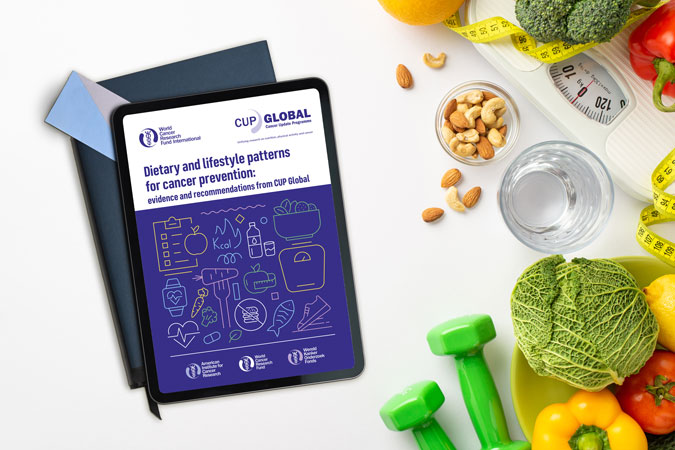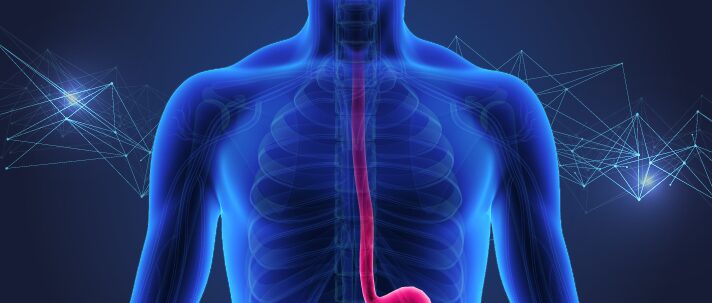A large study that we’ve funded has found that higher levels of folate (vitamin B9) and folic acid in the diet can reduce the risk of bowel (colorectal) cancer by 9%.
We recommends that people, especially men, should eat more leafy greens, such as spinach, cabbage, broccoli on a daily basis, to reduce their risk of bowel cancer.
The study was led by Dr Konstantinos Tsilidis, Reader in Cancer Epidemiology and Prevention at Imperial College London. The study, published in the American Journal of Clinical Nutrition, gathered data from more than 70,000 people and looked into how food high in folate, such as leafy green vegetables, affects cancer risk.
The research revealed a stronger link in males than in females. If men and women both had the same amount of folate, there was an 11% lower risk of getting bowel cancer for men, compared with 6% for women.
Folate is a natural form of vitamin B9 and is found in many foods. Good sources include spinach, cabbage, broccoli, sunflower seeds, wholegrains, pulses (chickpeas, lentils and beans), and fruit, especially citrus fruits such as oranges.
It is also sold as a supplement in the form of folic acid. Folate and folic acid are critical for producing red blood cells and are especially important for women who are pregnant or trying to get pregnant.
Bowel cancer is the 3rd most common cancer globally. In the UK, bowel cancer is the 4th most common cancer, with nearly 45,000 people diagnosed every year, and more than 120 new cases diagnosed each day. 1 in 15 men are likely to receive a bowel cancer diagnosis in their lifetime, compared with 1 in 18 women.
There are ways to reduce bowel cancer risk, including eating a varied diet – rich in wholegrains, vegetables, fruit, and beans – which supports the findings from this study.
Dr Tsilidis said:
The potential protective health benefits of vitamin B9 are demonstrated in this large study. The study also found promising findings about how folate may be influencing cancer risk, including different genes, but these need further exploration.
Dr Helen Croker, Assistant Director of Research and Policy at World Cancer Research Fund, said:
Interestingly, in this study, the protective effects were seen at usual dietary intakes of folate, further indicating the importance of folate-rich foods as part of a healthy, balanced diet, as well as being physically active.
Matt Lambert, Nutritionist and Health Information Manager at World Cancer Research Fund, said:
This study adds to what we’ve been saying for years – that a healthy diet based around vegetables, fruit, wholegrains and pulses can help reduce cancer risk. Folate, which is found in a variety of foods, has not only has been linked to a reduced bowel cancer risk, but also supports our overall health if eaten frequently.
We understand that not everyone enjoys eating vegetables, which is why we have lots of delicious and varied recipes that use vegetables without you even knowing they are there.

Eating more ultra-processed food (UPF) may be associated with a higher risk of developing cancers of the upper aerodigestive tract (including mouth, throat and oesophageal cancers), according to a new study funded by World Cancer Research Fund and led by researchers from the University of Bristol and the International Agency for Research on Cancer (IARC).
The authors of this international study, which analysed diet and lifestyle data on 450,111 adults who were followed for approximately 14 years, say obesity associated with the consumption of UPFs may not be the only factor to blame. The study was published in the European Journal of Nutrition.
Selected coverage of this research
- Obesity may not be the only factor to link ultra-processed foods to higher risk of mouth, throat and esophagus cancers – Medical Xpress
- Eating too many ready meals could raise your risk of at least three types of cancer by almost 25%, study suggests – The Sun
- Foods children eat every day linked to throat and mouth cancer – Bristol Post and Wales Online
Several studies have shown a link between UPF and cancer, including a recent study which looked at the association between UPFs and 34 different cancers in the UK Biobank.
As many UPFs have an unhealthy nutritional profile, researchers from the Bristol Medical School and IARC sought to establish whether the association between UPF consumption and head and neck cancer and oesophageal adenocarcinoma (a cancer of the oesophagus) could be explained by an increase in body fat.
Results showed that eating 10% more UPF is associated with a 23% higher risk of head and neck cancer and a 24% higher risk of oesophageal adenocarcinoma in the largest cohort study in Europe, the European Prospective Investigation into Cancer and Nutrition cohort. Increased body fat only explained a small proportion of this statistical association.
Growing pool of evidence on UPF
Dr Helen Croker, World Cancer Research Fund’s Assistant Director of Research and Policy, said:
This study adds to a growing pool of evidence suggesting a link between UPF and cancer risk. The association between a higher consumption of UPF and an increased risk of developing upper-aerodigestive tract cancer supports our Cancer Prevention Recommendations to eat a healthy diet, rich in wholegrains, vegetables, fruit and beans.
Fernanda Morales-Berstein, the study’s lead author, said:
UPFs have been associated with excess weight and increased body fat in several observational studies. This makes sense, as they are generally tasty, convenient and cheap, favouring the consumption of large portions and an excessive number of calories. However, it was interesting that in our study the link between eating UPFs and upper-aerodigestive tract cancer didn’t seem to be greatly explained by body mass index and waist-to-hip ratio.
The authors suggest that other mechanisms could explain the association. For example, additives including emulsifiers and artificial sweeteners which have been previously associated with disease risk, and contaminants from food packaging and the manufacturing process, may partly explain the link between UPF consumption and upper-aerodigestive tract cancer in this study.
George Davey Smith, Professor of Clinical Epidemiology and Director of the MRC Integrative Epidemiology Unit at the University of Bristol, and co-author on the paper, said:
UPFs are clearly associated with many adverse health outcomes, yet whether they actually cause these, or whether underlying factors such as general health-related behaviours and socioeconomic position are responsible for the link, is still unclear.
Further research is needed to identify other mechanisms, such as food additives and contaminants, which may explain the links observed.
However, based on the finding that body fat did not fully explain the link between UPF consumption and upper-aerodigestive tract cancer risk in this study, Morales-Berstein said:
Focusing solely on weight loss treatment, such as Semaglutide, is unlikely to greatly contribute to the prevention of upper-aerodigestive tract cancers related to eating UPFs.
The multinational study involved 266,666 men and women from 7 European countries, and the University of Vienna, in collaboration with the International Agency for Research on Cancer (IARC-WHO). Led by Reynalda Córdova, who received a DOC scholarship from the Austrian Academy of Sciences (ÖAW), and co-funded by World Cancer Research Fund International, the new research is based on data from the European Prospective Investigation into Cancer and Nutrition (EPIC).
The researchers discovered that the more ultra-processed foods consumed, the greater the risk of suffering from 2 or more long-term health conditions, such as cancer, diabetes and heart disease.
Specifically, associations were noted with animal-based products and artificially sweetened beverages (eg soft drinks).
Ultra-processed foods are convenient (long shelf-life, ready-to-eat), industrially manufactured foods with added ingredients or additives (eg modified starch, hydrogenated oils) that are typically found in fast food restaurants or sold via supermarkets. Examples are soft drinks, sweet or savoury packaged snacks, processed meat, pre-prepared frozen or shelf-stable dishes, and more.
> What is ultra-processed food and why should we be worried?
> Ultra-processed food – we should be guided by facts not fear
Multimorbidity – a growing concern
People suffering from a combination of chronic diseases (multimorbidity) is a growing health problem worldwide. The findings of this study can inform preventive strategies to improve people’s health through dietary recommendations, health policies and interventions.
Reynalda Córdova said: “Our study highlights the importance of ensuring universal access to fresh and less processed foods. In addition, our findings emphasise the importance of a differentiated analysis of ultra-processed food subgroups.
While certain groups, such as animal products and artificially and sugar-sweetened beverages, were associated with increased risk, other groups, such as ultra-processed breads and cereals or alternative plant-based products, showed no association with risk.
Heinz Freisling, co-author and study lead at IARC, said: “These findings are of concern because ultra-processed foods comprise nowadays more than half of our daily food intake. Critics of the classification of certain foods as ultra-processed argue that the definition is impractical and that some foods classified as ultra-processed make important contributions to the nutrient intake of specific population groups (eg older adults).
“Such criticism should certainly be considered. However, our study emphasises that it’s not necessary to completely avoid ultra-processed foods; rather, their consumption should be limited, and preference be given to fresh or minimally processed foods.”
Karl-Heinz Wagner, co-author and professor at the University of Vienna, said: “The results indicate that the existing dietary recommendations, focusing on the consumption of plant-based foods, are consistent with current findings on ultra-processed foods. This is another reason to reduce the high consumption of animal-based foods.”
Dr Helen Croker, Assistant Director of Research and Policy at World Cancer Research Fund, said: “What’s particularly significant in this large study is that eating more ultra-processed foods, in particular animal products and sweetened beverages, was linked to an increased risk of developing cancer along with another disease such as a stroke or diabetes. Our Cancer Prevention Recommendations include limiting processed foods high in fat, starches or sugars, avoiding processed meat and eating plenty of wholegrains, vegetables, pulses and fruit.”
The study was co-funded by the Austrian Academy of Sciences, Cancer Research UK, the French National Cancer Institute and World Cancer Research Fund International.
Reynalda Córdova is a recipient of a DOC Fellowship of the Austrian Academy of Sciences at the Department of Nutritional Science in the working group of Prof Wagner and a PhD Student in the Vienna Doctoral School of Pharmaceutical, Nutritional and Sport Sciences.
Read the study
Consumption of ultra-processed foods and risk of multimorbidity of cancer and cardiometabolic diseases: a multinational cohort study
Cordova, Reynalda et al.
The Lancet Regional Health – Europe, Volume 0, Issue 0, 100771

Get our policy enewsletter
Our monthly digest of the most important developments in international policy relating to cancer and nutrition and physical activity





